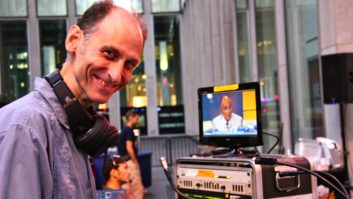 This past July, a labor agreement between 13 West Coast IATSE (International Alliance of Theatrical Stage Employees) chapters and the AMPTP (Alliance of Motion Picture and Television Producers) expired. IATSE represents more than 150,000 workers in film and TV production, live theater and concert production, while the AMPTP represents production companies such as Disney, Universal, Warner Bros., Apple, Netflix and Paramount.
This past July, a labor agreement between 13 West Coast IATSE (International Alliance of Theatrical Stage Employees) chapters and the AMPTP (Alliance of Motion Picture and Television Producers) expired. IATSE represents more than 150,000 workers in film and TV production, live theater and concert production, while the AMPTP represents production companies such as Disney, Universal, Warner Bros., Apple, Netflix and Paramount.
Over the course of the summer, the two organizations negotiated for a three-year agreement, but talks broke down in late September.
Unsatisfied with the manner in which the discussions were progressing at the beginning of October, members of IATSE who work at 36 local IATSE unions nationwide voted to authorize the union’s international president to call the first nationwide strike since the union was founded (in 1893) if contract talks didn’t result in new agreements for 60,000 film and television workers that fall under the Basic Agreement and the Area Standards Agreement.
Yikes.
When a strike date was set for October 18, talks resumed with more urgency. Surprise, surprise. A tentative agreement was reached on October 16, though negotiations continue for those who belong to IATSE local unions in other major production hubs such as New Mexico, Georgia, Louisiana, New York and Illinois.
Mix Live Blog: Get Back Inside!
One of the big issues on the table was the weekend work schedule, which (as anyone working in the entertainment industry can attest) is relentless, and terms of the new agreement include mandatory weekend rest periods of 54 hours.
Other provisions of the new agreement (which must be ratified by IATSE members) include ensuring that the lowest-paid earners receive a living wage, a minimum 10-hour turnaround between shifts, increased meal period penalties, improved wages and working conditions for streaming productions, retroactive wage increases of three percent annually, and recognition of Dr. Martin Luther King, Jr.’s Birthday as a holiday.
A huge majority of IATSE members supported the push for a new contract, as did actors (including Danny DeVito, Ben Stiller, Seth Rogan, Lily Tomlin and others), directors, the AFL-CIO and 120 members of Congress.
I can’t help but wonder if the average media consumer has any idea what an IATSE strike would signify: TV and film production across the U.S. would grind to a screeching halt, and the repercussions would be felt worldwide. There may be a cache of unreleased material sitting in the vaults of some of these production companies, but—given the COVID-abbreviated production schedule of the past year and a half—that’s wearing thin and studios are looking to increase production to fill the void.
The situation is indicative of an economic climate where people are getting fed up with being mistreated. When 16-hour days become the norm, and there’s not enough down time to recharge, something’s got to give. Just ask any touring tech or engineer who logs 16-hour days on a regular basis. Is that considered paying your dues and showing dedication, or is it abuse? IATSE has an advantage. God bless ’em for using it.







